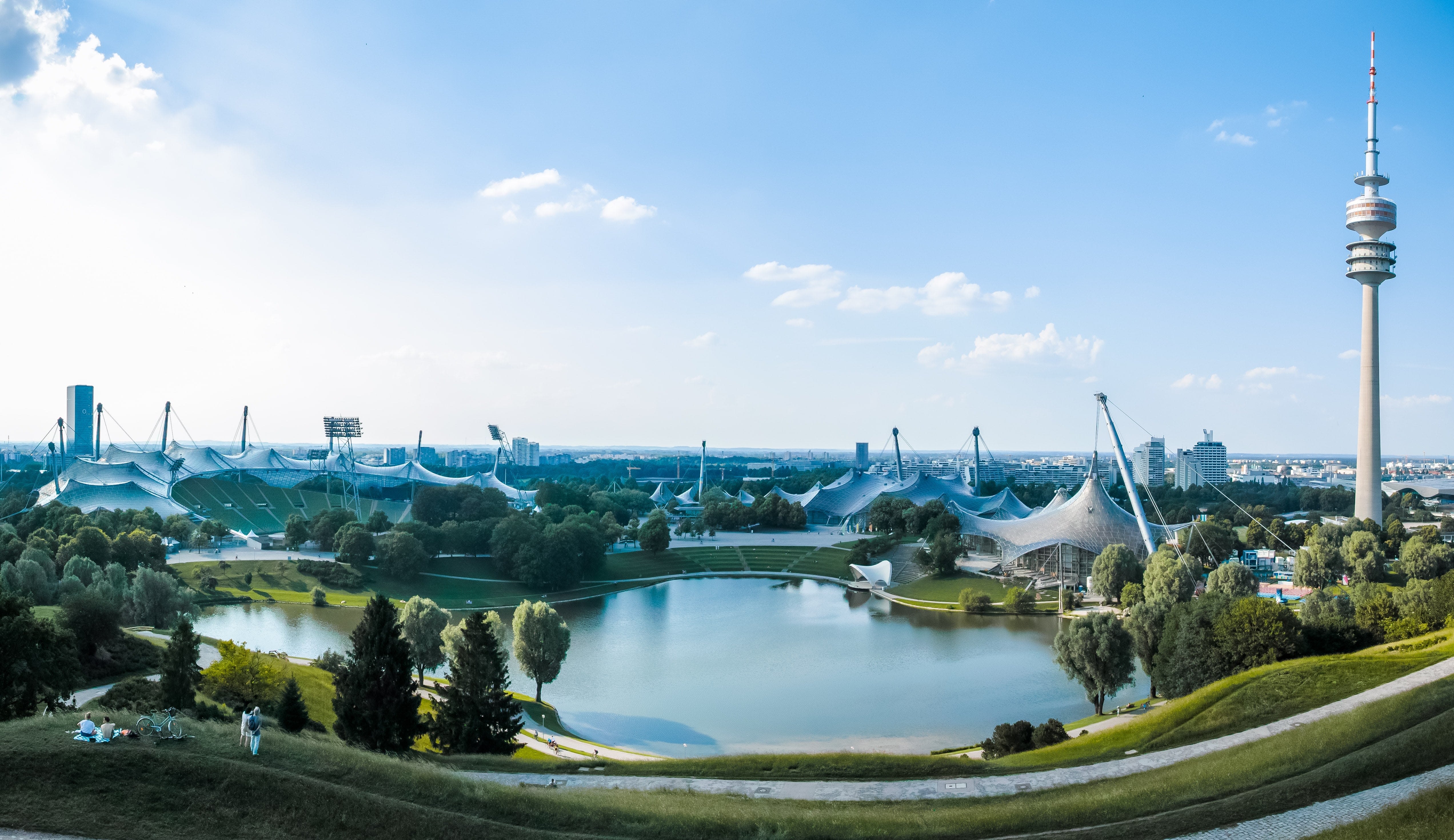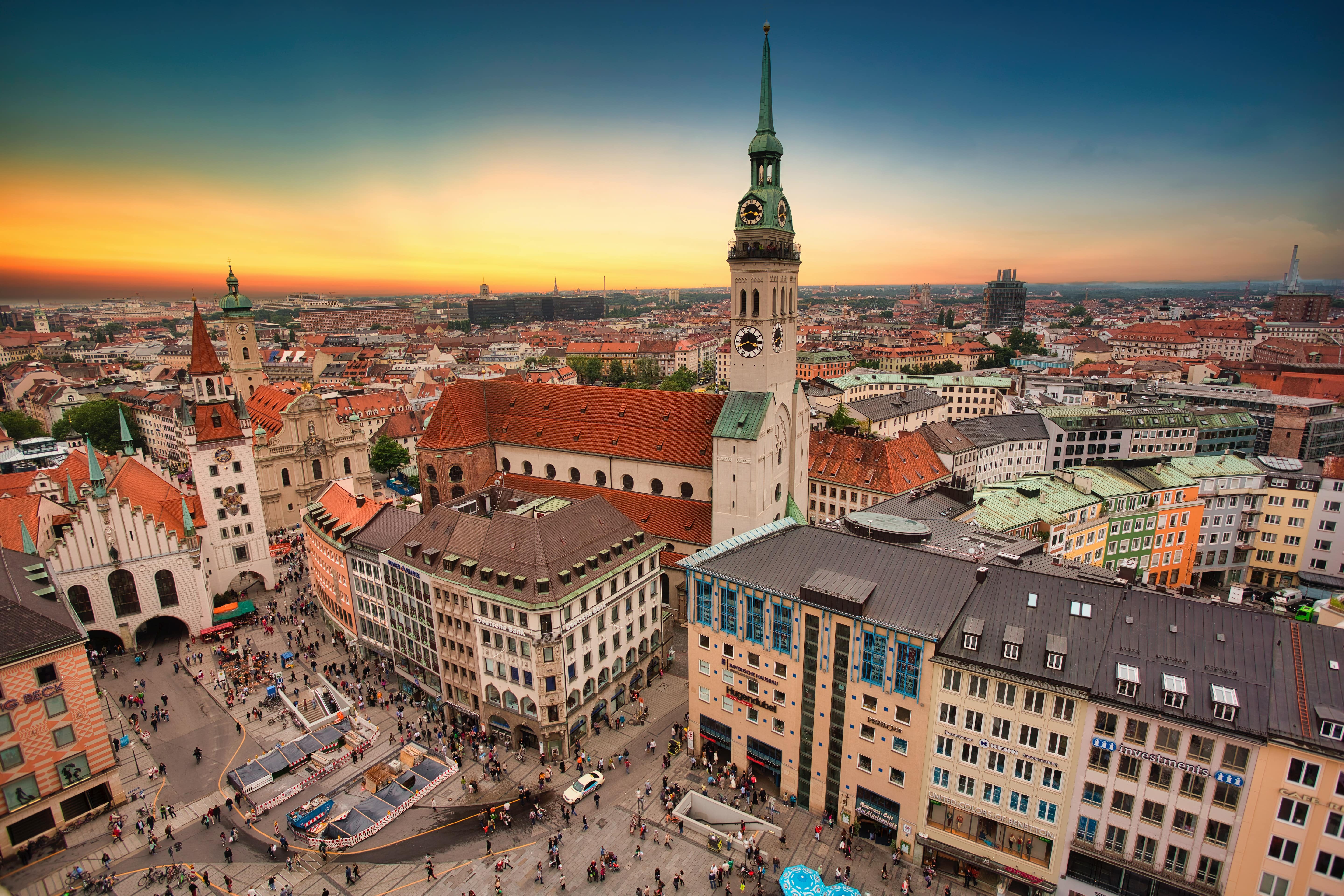Whether you’re looking to enjoy a world-class brew at Oktoberfest or escape into the picturesque Alps, there’s no destination quite as steeped in culture and views as Munich! The Bavarian capital city in southern Germany is a world-class destination and has no shortage of sights to see, beer to drink, and Bavarian cuisine to enjoy.
In addition, their proximity to the pristine Alps mountain range means that they are also privy to some of the best water in Europe. Unfortunately, though, just like most cities throughout the world, this doesn’t mean that their tap water is as clean and pristine as you may believe. In this article, we’ll talk about the potential safety concerns that may come with Munich’s tap water — and outline why you should still filter it before drinking for peace of mind.
TL;DR: Munich tap water is safe, but it should still be filtered first.
- Drinking water is Germany’s “most monitored foodstuff” and is subject to strict testing according to the German Drinking Water Ordinance.
- The tap water also comes from an especially high-quality source: the foothills of the Alpine mountain range in Bavaria.
- Even still, Munich’s tap water may have issues with lead or chemical contamination due to older infrastructure and human agricultural/production practices.
- Therefore, you’ll want to use a high-quality water filter like LARQ’s Bottle Filtered or Pitcher PureVis to ensure that every sip of water you’re drinking is safe.
Issues with Munich’s tap water
Munich’s tap water comes from the beautiful Alpine foothills of Bavaria and is heavily regulated by Germany’s strict water treatment regulations, the Trinkwasserverordnung (German Drinking Water Ordinance. As such, it consistently ranks among some of the best tap water in Europe.
But even still, just like in most cities throughout the world, certain water quality issues still remain.

Lead contamination
One of the most prevalent issues that can present itself in Munich tap water, like the rest of the world, is the potential risk of lead contamination.
Lead is a neurotoxic metal that has been linked to various serious conditions upon consumption, including brain damage, soft tissue injury, and damage to reproductive organs. Your body also has no way of getting rid of lead metal, which means that it can accumulate inside of your body instead.
To be fair, Germany does take its water safety very seriously, especially when it comes to lead contamination. In fact, it only allows for 0.01 mg/L of lead in drinking water. Unfortunately, this still might not be enough, as many experts agree that there is no known safe level of lead consumption.
Lead metal was used to make water pipes in private homes up until the 1970s, which means that many older homes and buildings may still use those lead pipes to deliver their water. This issue was highlighted in 2013, when elementary and middle schools in the municipality of Poing started to use water dispensers rather than tap water due to high levels of lead content found in the drinking water, with authorities chalking those high lead levels up to the continued use of old lead water pipes.
Pesticides
Another major issue for tap water quality in all of Germany at large is pesticide contamination. Chemicals that are used to spray crops can sometimes seep into groundwater sources, contaminating the drinking water.
This was most infamously highlighted when glyphosate, a weed killer found in Roundup, was found at levels of more than the 0.1 microgram limit allowed in drinking water in German beers in 2016, more than the 0.1 microgram limit allowed in drinking water. The good news is that these measurements have seen plenty of improvements since then, but still begs the question as to how those chemicals got into the beer supply at all. Scarier still: a survey by the Henrich BöllFoundation found that about 75% of Germans had high levels of glyphosate nearly five times higher than the limit value for drinking water in their urine.
Again, Germany does keep a close eye on its water quality, which means that it does address these pesticide concerns. But this also translates to a more expensive final product for the consumers: in fact, Germany’s tap water has risen almost 18% between 2005 and 2016 due to the costs it takes to purify it from nitrates.
PFAS/PFOA
Finally, it’s also worth taking a look at the presence of PFAS and PFOA in Munich tap water.
Per- and polyfluoroalkyl substances (PFAS) and perfluorooctanoic acid (PFOA) are so-called “forever chemicals” that are used in various manufacturing practices. Unfortunately, these chemicals get their nickname because they don’t naturally degrade, which means that they can stay in the environment virtually forever and get into the tap water. We don’t yet know exactly what health risks PFAS/PFOA can present upon consumption, but there is evidence that suggests that they may be linked to the increased risk of certain cancers.
Just like in many other cities around the world, southern Germany is also at risk for exposure to various “forever chemicals.” For example, a study found evidence of PFOA exposure in Southern Germany residents who lived near a former PFOA production plant.
Water Hardness
Finally, while this may not be a quality or safety concern, some people also find issues with the taste of Munich tap water. Because it comes from groundwater reserves near the foothills of the Alps, the water in Munich contains plenty of minerals like calcium and magnesium, which can contribute to a stronger taste. Hard water can also cause limescale buildup, which will cause your kettle or coffee machine to clog up.
The bottom line: filter your Munich tap water before drinking.
Even though Munich’s tap water comes from such a pristine source and is regulated so thoroughly according to the German Drinking Water Ordinance, quality issues still remain. Due to old infrastructure and human pollution, Munich tap water is still subject to issues like lead leaching, pesticides, and “forever chemicals” PFAS and PFOA.
In order to protect your health with every sip, make sure to filter your tap water before drinking or using it to cook, especially if you’re staying in an older building. LARQ’s Bottle Filtered and Pitcher PureVis both filter your tap water from any pressing concerns including lead, PFAS/PFOA, heavy metal contamination and chemical contamination so that every sip of water is as fresh as nature intended. When preparing hot water in the kettle or coffee in your machine, always use filtered water to avoid clogging up and breaking your machines.
